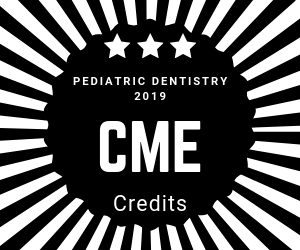
Uwase Aneth
Undergraduate Student
Southwestern University
Philippines
Biography
My primary research interest is in the area of effectiveness of music distraction in the Management of Anxious pediatric dental patients in the Philippines. In my research I wanted to know the oral health among children in the Philippines, the dental health system in the country and some possible solutions and recommendations to improve the oral health status. I have found that in dental offices here there's still remains a challenge in day to day pediatric dental practice. The effect of different behaviour management procedures in managing anxious children is well documented, for example, distraction. This study is an attempt to evaluate the effect of music (audio) distraction in reducing the anxiety I also found that Pediatric dental patients can be placed at two extremes. At one end happy and relaxed children who readily accept dental treatment, at the other end are those extremely fearful children who resist every form of treatment offered. Some children unwillingly get dental treatment and show undesirable behaviour management problems, which may complicate the treatment procedure. If behaviour is not managed properly, it will promote a negative attitude to dental treatment. If left untreated for a longer time it will deteriorate the oral health of such patients and leads to invasive and complicated dental treatment, which is likely to be unpleasant and in turn increases the negative attitude in an anxious child. Theres also Anxious children demand considerable dedication and expertise in child management techniques from the dentist and the dental staff, Although many management techniques are successful, the present trend is towards non-aversive techniques, Audio distraction is one such non- aversive technique which was successfully used in medical settings. The etiological factors for anxiety in a child patient can be classified into Exogenous factor or Dental factor: e.g. direct experience, indirect experience or familial trait, fear of unknown and lacking control. Endogenous factor or non-Dental factor (psychological factor):e.g. trait anxiety of children, general behaviour problem of children, the temperament of the child and socioeconomic status. The health care system in the Philippines can be classified as a national health care system in which the government provides health care services through a number of government agencies. Traditionally, there are many varied approaches to managing dental anxiety and fear. For example, children are given a sense of control over proceedings, may hold a toy, or the dentist can spend a little ‘social’ time with the fearful child before treatment. As an alternative to these ‘traditional’ approaches, the American Academy of Pediatric Dentistry has outlined a series of behavioural management techniques to deal with the problem, ranging from, for example, voice control, to distraction, to physical restraint12. When all else fails, sedation with drugs such as nitrous oxide has been advocated. All of the above techniques have the same purpose, to make cognitive orientation and promote coping ability. I was curious to determine if music distraction is an effective means of managing anxious dental patients, I have found that there are materials and methods about it. MATERIALS AND METHODS: - Inclusion Criteria: 1. Children aged between 6 to 12 years 2. Children with no previous dental experience 3. Children well oriented with time and space Exclusion Criteria: 1. Children with any sort of mental or physical disability Informed consent was obtained from the parents prior to the start of the treatment procedure Each child had 3 dental visits as follows 1. Screening 2. Restorative procedures or oral prophylaxis (scaling) without the need for a local anaesthetic injection. 3. Invasive procedures necessitating the need for a local anaesthetic injection.
Research Interest
Preventive Dentistry

